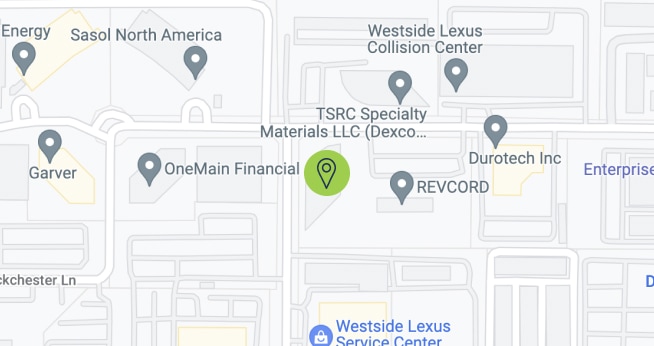How to File a Workers’ Compensation Claim in Texas

If you’ve been injured on the job, you understand the physical, emotional, and financial toll it can take on your life. During such challenging times, having a compassionate and experienced legal team by your side is crucial to ensure your rights are protected and that you receive the compensation you need to recover.
At Fleming Law, we are here to be your advocates and champions. Our unwavering commitment to our clients has made us a leading authority in workers’ compensation law in the Houston area. We understand the intricacies of the workers’ compensation system, and we are passionate about helping injured workers navigate through it successfully.
Whether you’ve suffered a minor injury or a severe accident at your workplace, our dedicated team of Houston workers’ compensation attorneys is here to guide you through the process, fight for your rights, and secure the benefits you are entitled to. Your well-being is our top priority, and we are ready to stand beside you every step of the way. Contact our Houston workers’ compensation lawyer today.
How to File a Workers’ Compensation Claim
If your employer has workers’ compensation coverage and you have been injured on the job, filing a claim is similar to filing an insurance claim. Below, we discuss the various steps you can take to file a claim.
Does Your Employer Have Workers’ Compensation?
First and foremost, find out if your employer has workers’ compensation coverage. If they do, you must file a workers’ compensation claim in order to receive any compensation for medical expenses, lost wages, and disability-based payments. If not, you would have to instead, work with an injury attorney to file a claim against your employer in court. To find out if your employer has workers’ compensation, check the Texas Division of Workers’ Compensation database.
Report Your Injury
Regardless of whether your employer does or does not have workers’ compensation coverage, you need to report your injury to your supervisor or employer as soon as possible (and in writing, if possible). Technically, you have 30 days to notify your employer, however, the sooner you report it, the more credible your claim that your injury arose on the job. If you fail to report your injury within 30 days, you may forfeit your ability to receive benefits.
Also note that, if your employer has workers’ compensation coverage, they will sometimes have a prescribed procedure and/or list of medical providers that you should rely on so that you are following any network requirements your employer has within their coverage.
Filing Your Claim
When it is time to file your claim, you will fill out the Employee’s Claim for Compensation for a Work-Related Injury or Occupational Disease form with the Texas Division of Workers’ Compensation online, in person, or by mail. The form must be filed within one year of the date of your injury or one year of the date that you knew or should have known that the injury occurred on the job. The mailing address for the Division is:
Texas Department of Insurance, Division of Workers’ Compensation
7551 Metro Center Drive, Suite 100 MS-93
Austin, TX, 78744-1645
If Your Claim is Denied
Next, the Division reviews your claim and notifies both your employer and its insurance company. Your employer’s insurance company then decides whether to accept or deny the claim. If your claim is denied, you have the right to challenge that decision through the Division and request a workers’ compensation hearing in front of a judge. At this stage, you will likely need to work with an experienced workers’ compensation attorney in order to properly appeal. Contact our Houston workers’ compensation lawyer today.
Can I get Fired While on Workers’ Compensation?
Many Texas employees fear that if they speak up about their workplace injury or illness they will receive some sort of retaliation from their employer such as harassment, demotion, or even being fired. Texas is an at-will employment state, which means that workers can be fired for almost any reason. They can be fired for cause, without bad cause, or without any cause. However, there are some important exceptions to this general rule. One of these is that of being a contracted employee. If you have an employment contract, it may specifically define when and how you can be let go.
Were You Fired for Getting Hurt?
According to the Texas Department of Insurance, 21% of workers who were injured on the job reported that they had been fired or laid off after being injured on the job. Unfortunately, it is true that a worker can be fired for getting hurt on the job in some cases. An employee who files a workers’ compensation claim and has to take time off work to heal may not have a job waiting for him or her after completing recovery, but that employee cannot be fired and denied benefits just for filing a claim. Filing a workers’ compensation claim is a protected act.
Many employers will fire an employee who gets hurt on the job simply so that they, the employer, are not held responsible for paying the employee’s bills through a rise in workers’ compensation insurance premiums. This, like firing an employee for filing a claim, is unlawful. If you were fired, you still have rights to workers’ compensation benefits as well as taking other actions against your employer if they caused wrongdoing.
The Family and Medical Leave Act
The Family and Medical Leave Act (FMLA) prohibits employers from terminating employees who take time off work (up to 12 weeks in a 12-month time period) for specified medical reasons. The employee must be allowed to begin working with the same terms and conditions that he or she had before taking the time off. The FMLA also allows the employee to continue participation with his or her group health insurance. Not all medical injuries are covered under the FMLA.
Protected Actions in Texas Workplaces
There are certain protected acts that employees can take without being fired. For example, employees cannot be fired for reporting “in good faith” a health and safety violation at work. They cannot be fired for filing a workers’ compensation claim, refusing to carry out an illegal action, filing a discrimination claim, having jury duty, or reporting an illegal violation.
Non-Subscriber Workers’ Compensation Cases in Texas
In Texas, any employers who do not provide workers’ compensation insurance are known as non-subscribers. By electing not to carry workers’ compensation insurance, non-subscribers lose important legal protections, such as immunity from lawsuits brought by injured employees. If that injured employee proves in court that the employer was negligent, the employer could be subject to high damage awards. Conversely, when employers have workers’ compensation, state law limits their ability to be sued if an employee is injured; that employee receives medical and income benefits, but in turn, generally cannot sue.
The Texas Workers’ Compensation Act
Under the Texas Workers’ Compensation Act, regardless of whether an employer is a subscriber or not, they must comply with reporting requirements. Specifically, they must submit specific forms to the Division of Workers’ Compensation each year and, if they have five or more employees, they must report each work-related fatality, occupational disease, and/or injury which results in more than one day of lost work time to the Division.
Additional Damages Available Against Non-Subscribers to Workers Compensation
If an employer is a non-subscriber, as previously mentioned, Texas law does not limit their liability for employees’ work-related injuries. Thus, if an employee is injured and files a lawsuit against the employer, and a jury or judge finds that the injury and any associated suffering were due to the employer’s negligence, that employer could be subject to punitive damages as well as any pain and suffering, which would not otherwise be available. The employer could also be subject to covering attorney’s fees.
In addition, defenses that would typically be available in other personal injury cases are not available to employers who elect not to have workers’ compensation coverage. These include defenses such as the employee’s negligence itself causing the injury, another employee’s negligence causing the injury, and/or the claim that the injured employee knew the risk of the activity and voluntarily accepted that risk.
There are No Real Substitutes for Workers’ Compensation
It is also important to note that while employers can elect to participate in other programs in place of workers’ compensation (such as accident insurance, disability policies, indemnification agreements, etc.), Texas law does not recognize these as viable alternatives that relieve an employer from potentially having a negligence suit brought against it for additional damages.
Workers’ Compensation Exceptions
There are two exceptions to this limitation. The first exception involves a fatal injury that resulted from gross negligence. The second exception involves intentional injuries. If an employee is injured and their injury does not qualify for one of these two exceptions, their recovery of damages may be severely limited.
If one of these exceptions applies, the claimant can pursue damages beyond the limits of worker’s comp for the injuries he or she sustained. The benefit of workers’ compensation for employees is seen in the case where the injury occurs in the course and scope of the employment but was caused by the injured worker. In general negligence cases, there would be no recovery but worker’s compensation compensates employees who are injured at work regardless of the cause.
Houston Workers’ Compensation Attorneys Who Care
At Fleming Law,our focus is representing injury victims. If you have been injured on the job, our attorneys will investigate your claim and fight aggressively to ensure that you receive workers’ compensation benefits. If your employer does not have workers’ compensation, we work with you to bring a claim against your employer in court to ensure that you and your family are taken care of as you recover from your injury. Contact us today to find out more.













